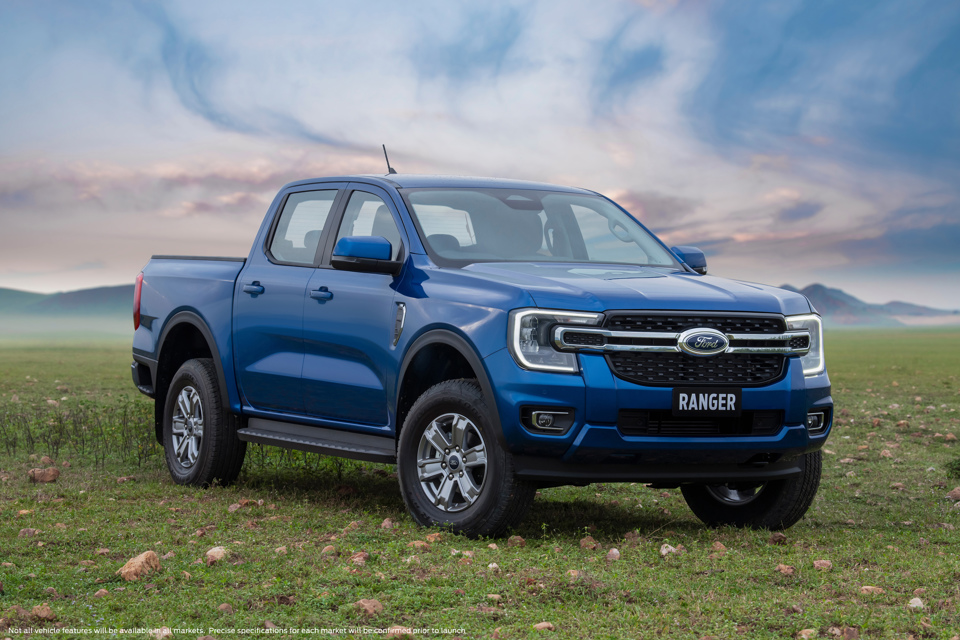The Government has performed a spectacular U-turn over its decision to treat double cab pick-ups as cars for taxation purposes by dropping the policy just seven days after announcing it.
On Monday February 12, HMRC updated its guidance on the tax treatment of double cab pick-ups following a 2020 Court of Appeal judgment. The guidance stated that from July 1, 2024, all double cabs with a payload of one tonne or more would be treated as cars rather than goods vehicles for both capital allowances and benefit-in-kind purposes.
The new rules were due to apply to all double-cab pick-ups ordered after July 1 - any vehicles already on fleet or ordered before July would still be subject to the existing classification until April 2028.
However, following a backlash from the motor industry, with Society of Motor Manufacturers and Traders chief executive Mike Hawes stating it would “raise costs significantly, and make an untenable choice for many”, the Government has decided to withdraw the new guidance.
Consequently, double cab pick-ups will continue to be treated as goods vehicles rather than cars, and businesses and individuals can continue to benefit from the historic tax treatment.
In a update posted on the Government website, it said: “The government has acknowledged that the 2020 court decision and resultant guidance update could have an impact on businesses and individuals in a way that is not consistent with the government’s wider aims to support businesses, including vital motoring and farming industries.”
The Government will now consult on the draft legislation to ensure that it achieves that outcome before introducing it in the next available Finance Bill.
Nigel Huddleston, financial secretary to the Treasury, said: “We will change the law at the next available Finance Bill in order to avoid tax outcomes that could inadvertently harm farmers, van drivers and the UK’s economy.”
Following the announcement, the SMMT's chief executive, Mike Hawes, tolf Fleet News: “This is a sensible decision and will come as a relief to the many sole traders and businesses, especially in the construction and farming sectors, that rely on double cab pick-ups for their livelihoods.
"Such a move, especially with little notice, would have damaged the market and decarbonisation aims.
"With the cost of living already high we should be looking at pulling every lever to boost, rather than limit, new vehicle uptake with efficient and zero emission models.”
The U-turn in full:
- The tax on the benefit-in-kind will now not increase when employers provide these vehicles to their employees; and the capital allowances available in the first year of use will now not be reduced when a business purchases this vehicle for use in their trade.
- This will ensure a continued and consistent treatment of double cab pick-ups for capital allowances, benefit in kind, and VAT purposes, maintaining simplicity in the tax system.
- HMRC will withdraw its updated guidance during the afternoon of Monday February 19, 2024.
- This update is only with reference to DCPUs with a payload of one tonne or more. DCPUs with a payload of less than one tonne continue to be treated as cars.
Simon Warne, partner, private clients, at accountancy firm Crowe UK, said: "HMRC's U-turn is welcome news for the automotive industry as well as businesses that rely on four-door double-cab pick-ups, especially those in the farming and construction sectors.
"The volume of opposition reflects the angst the impact these proposed tax changes could have had on raising costs for businesses and a potential decline in sales for manufacturers as a result.
“We look forward to the outcome of HMRC’s proposed consultation to ensure accompanying guidance and legislation offer clarity and support for businesses.”






















Jstuart999 - 20/02/2024 11:27
Unbelievable!!!!! Who is running this country? They did not reverse the expansion of the ULEZ because the people complained! Which the government could have done.